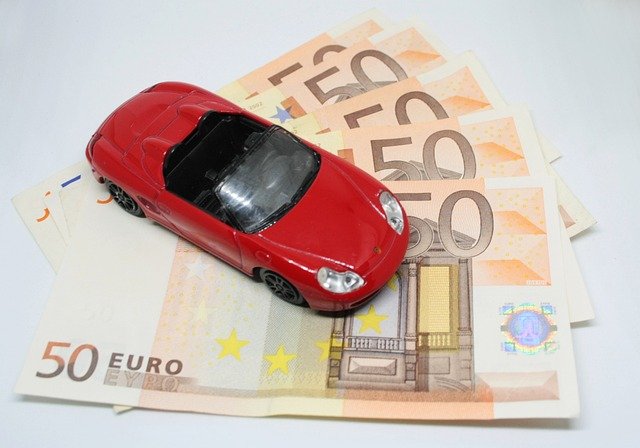Repossessed Cars for Sale Nearby: Find Auction Deals and Bank-Owned Vehicles
Repossessed cars offer a unique opportunity for buyers to find quality vehicles at potentially lower prices. These automobiles, reclaimed by banks or financial institutions due to defaulted loans, often end up at auctions or dealerships specializing in repossessed vehicles. Understanding the process of finding and purchasing repossessed cars can help savvy shoppers secure great deals on pre-owned vehicles in their local area.

What are repossessed cars and how do they become available?
Repossessed cars are vehicles that have been taken back by lenders when borrowers fail to make payments on their auto loans. When a car owner defaults on their loan, the lender has the right to reclaim the vehicle as collateral. Once repossessed, these cars are typically sold to recover the outstanding loan balance. The process of repossession and subsequent sale creates an opportunity for buyers to purchase vehicles that may be in good condition at prices below market value[1].
Where can you find repossessed cars for sale?
Repossessed cars can be found through various channels, each offering different advantages and considerations for potential buyers:
-
Bank auctions: Many financial institutions hold their own auctions to sell repossessed vehicles directly to the public.
-
Government auctions: Federal and state agencies often auction off seized or surplus vehicles, including repossessed cars.
-
Online auction websites: Platforms like Copart and IAA (Insurance Auto Auctions) list repossessed vehicles from multiple sources.
-
Dealerships: Some car dealerships specialize in selling repossessed or bank-owned vehicles.
-
Local classifieds and online marketplaces: Private sellers who have purchased repossessed cars may list them for resale on platforms like Craigslist or Facebook Marketplace[2].
What are the benefits of buying repossessed cars?
Purchasing a repossessed car can offer several advantages for budget-conscious buyers:
-
Lower prices: Repossessed vehicles are often sold below market value, as lenders aim to quickly recover their losses.
-
Wide selection: Auctions and dealerships specializing in repossessed cars typically offer a diverse range of makes, models, and vehicle types.
-
Potential for good condition: Many repossessed cars are relatively new and well-maintained, as they were owned for only a short time before being reclaimed.
-
Transparent history: Repossessed vehicles usually come with detailed vehicle history reports, allowing buyers to make informed decisions.
-
Negotiation potential: At auctions or dealerships, there may be room for negotiation, especially if the vehicle has been in inventory for a while[3].
What are the risks associated with buying repossessed cars?
While repossessed cars can offer great value, there are some potential drawbacks to consider:
-
Limited inspection opportunities: Auction environments may not allow for thorough vehicle inspections or test drives before purchase.
-
As-is condition: Most repossessed cars are sold “as-is,” meaning the buyer assumes all responsibility for any repairs or issues.
-
Competition: Popular models or vehicles in good condition may attract multiple bidders, driving up prices at auctions.
-
Hidden damage: Some repossessed cars may have been neglected or abused by previous owners, leading to potential mechanical issues.
-
Incomplete documentation: In some cases, repossessed vehicles may have incomplete service records or missing titles, which can complicate the purchase process[4].
How can you find the best deals on repossessed cars nearby?
To maximize your chances of finding great deals on repossessed cars in your area:
-
Research local auctions: Look for upcoming bank, government, and online auctions in your region.
-
Set a budget: Determine your maximum spending limit before attending an auction or visiting a dealership.
-
Check vehicle histories: Use services like Carfax or AutoCheck to review the vehicle’s history and maintenance records.
-
Inspect thoroughly: Whenever possible, conduct a detailed inspection or hire a professional mechanic to evaluate the vehicle.
-
Compare prices: Research market values for similar vehicles to ensure you’re getting a good deal.
-
Be prepared to act quickly: Auctions move fast, so have your financing and documentation ready if you plan to bid[5].
What are some reputable sources for finding repossessed cars?
| Source | Type | Key Features |
|---|---|---|
| Copart | Online Auction | Large inventory, nationwide coverage, detailed vehicle information |
| IAA (Insurance Auto Auctions) | Online Auction | Specializes in salvage and repossessed vehicles, extensive network |
| GSA Auctions | Government Auction | Federal fleet vehicles, transparent bidding process |
| Bank of America Auto Loan Center | Bank Auction | Direct access to bank-repossessed vehicles, potential for local deals |
| ADESA | Wholesale Auction | Dealer-only auctions, high-quality inventory |
Prices, rates, or cost estimates mentioned in this article are based on the latest available information but may change over time. Independent research is advised before making financial decisions.
Finding repossessed cars for sale nearby can be an excellent way to secure a quality vehicle at a competitive price. By understanding the process, weighing the benefits and risks, and utilizing reputable sources, buyers can navigate the world of repossessed car sales with confidence. Whether you’re looking for a daily driver or a project car, exploring the market for repossessed vehicles might lead you to your next great automotive deal.




